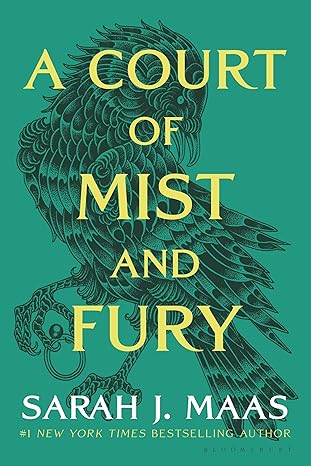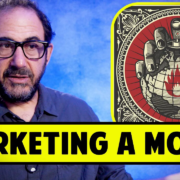
Unlocking the Art of Dialogue: Insights from Sarah T. Schwab

Writing compelling dialogue is crucial for any writer, especially in the realm of theater and film. Sarah T. Schwab, an accomplished filmmaker and playwright, shares her journey and experiences that shaped her ability to craft authentic conversations. In this blog post, we’ll explore her insights, the lessons she learned, and how personal experiences can fuel creative storytelling.
Table of Contents
- The Beginning of a Journey
- A Pivotal Argument
- Transforming Personal Pain into Art
- Recognizing the Right Story
- Curiosity and Research
- Crafting Authentic Dialogue
- Conclusion
- FAQ
The Beginning of a Journey
Sarah recalls her early days in New York’s independent theater scene, where she struggled with writing dialogue. She describes a time filled with “exposition, exposition,” lacking the natural flow that makes conversations resonate. It was a learning curve, but the environment around her, filled with talented actors and writers, fueled her desire to improve.

She reminisces about attending performances at the Rattlestick Playwrights Theater, where she was inspired by great talents like Vanessa Redgrave and Jesse Eisenberg. These experiences were pivotal in her development as a writer. Despite facing embarrassing moments, she remained determined to learn and grow, attending readings and engaging with fellow creatives.
A Pivotal Argument
One significant event that transformed her writing process was a heated argument with her producing partner, Brian Long. They discussed sensitive end-of-life topics, and Sarah’s emotions ran high. This confrontation led her to retreat to her shower, where she processed her feelings and later translated that raw energy into words.
Emerging from that moment, she penned a scene that would become the foundation of her play, “A Stage of Twilight.” This work draws inspiration from her father’s battle with cancer and her own experiences with grief. The dialogue she crafted from that argument felt genuine and reflective of real emotions, marking a turning point in her writing journey.
Transforming Personal Pain into Art
Sarah’s story is not just about learning to write; it’s about channeling personal experiences into compelling narratives. In “A Stage of Twilight,” she explores profound questions surrounding illness and mortality. The dialogue not only serves the plot but also captures the essence of her father’s character and their relationship.

She recalls conversations with her father that shaped the play. One poignant moment was when she asked him if he was afraid to die. His response, highlighting his contentment with life, profoundly affected her. This exchange became a cornerstone of her narrative, emphasizing the importance of authentic dialogue rooted in personal experience.
Recognizing the Right Story
When asked how she knows she’s working on the right idea, Sarah emphasizes the feeling of being unable to escape a story. It calls to her, and she finds herself thinking about it even in casual conversations. This persistent curiosity drives her to explore the narrative further, leading to a deeper connection with her characters.

She describes the excitement that comes when she sits down to write, even if she encounters writer’s block. It’s this passion that signals to her that the story is worth pursuing. If she still cares about the characters and their journeys, it’s a sign that she’s on the right track.
Curiosity and Research
Research plays a crucial role in Sarah’s writing process. She often delves into old news stories and relevant historical contexts that inform her narratives. This exploration can lead to unexpected insights and quotes that enrich her characters and their arcs.

However, she emphasizes the importance of staying focused on the overall mission of the story. While it’s tempting to follow every interesting lead, the writer’s duty is to maintain coherence and relevance within the narrative.
Crafting Authentic Dialogue
Through her experiences, Sarah has learned that authentic dialogue stems from a deep understanding of characters. It’s essential to know who they are, their backgrounds, and their relationships with others. This knowledge allows writers to create conversations that feel real and impactful.

She encourages writers to draw on their own experiences and emotions when crafting dialogue. This personal touch can make conversations resonate more deeply with audiences, allowing them to connect with the characters on a more profound level.
Conclusion
Sarah T. Schwab’s journey illustrates the importance of persistence, emotional honesty, and curiosity in writing. By transforming personal experiences into art, she has mastered the craft of dialogue, creating narratives that are both authentic and relatable. Aspiring writers can take inspiration from her story, understanding that the path to great writing is often paved with personal experiences and a willingness to learn and adapt.

FAQ
What is the significance of dialogue in storytelling?
Dialogue is crucial as it reveals character, advances the plot, and creates emotional connections between characters and the audience.
How can personal experiences enhance my writing?
Drawing from personal experiences can lend authenticity to your characters and narratives, making them relatable and engaging for readers.
What should I do if I’m struggling with writer’s block?
Take breaks, explore other creative outlets, or return to your characters’ motivations to reignite your passion for the story.
How important is research in writing?
Research enriches your narrative by providing context, depth, and authenticity, helping to create a more immersive experience for readers.
Where can I watch Sarah T. Schwab’s film “A Stage of Twilight”?
You can watch A Stage of Twilight (2022) – Free Movies | Tubi.



















